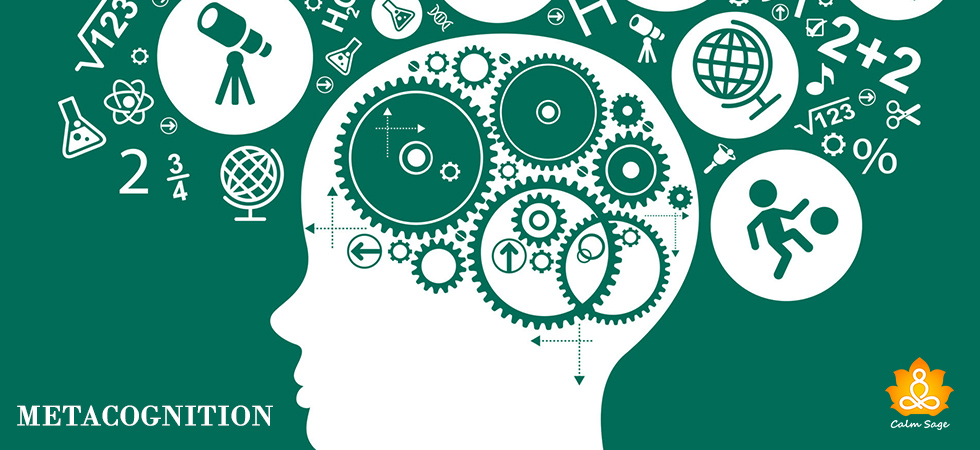How Can Meta-Cognition Help Our Kids Learn Better?

Metacognition is something we all do every single day without even noticing it. The process of metacognition basically involves thinking about your own thoughts. It helps you evaluate your thoughts and reframe them to get better results.
Metacognition can be beneficial to anybody who invests their time in it but it is especially beneficial for kids. It helps them learn better. This doesn’t mean that it will give you some special ability to learn quicker.
Metacognition aims at changing the negative approach to problems. It helps children realise that they shouldn’t give up that easily. If your kid is finding it difficult to solve a math problem and is disheartened, you can encourage meta-cognitive thinking so that they can view the problem differently. This way they will work towards solving the problem and not escaping it.
What Is MetaCognition?

Metacognition when broken into two, Meta means beyond & cognition which came from the Latin word cognocere means getting to know better. Hence, it basically means getting to know about your thoughts beyond the knowledge that you already have about them.
Metacognition came into light in the recent past when the education endowment foundation toolkit highlighted the effectiveness of metacognition especially to enhance the learning process. Metacognition is basically being aware of your thoughts and having the capability of choosing a healthier and positive thought process.
Why Is MetaCognition Important For Your Kid?
According to recent studies, metacognitive thinking has improved the learning process in children. They have seen a significant improvement in comprehending and solving problems related to complex concepts of science, math and english.
Metacognition is important because it will help your child:
- Analyse their thoughts
- Be more self-aware
- Have better control on their thoughts
- Have the capability of choosing the right way to deal with the situation at hand
The most important part of metacognition is that it helps your children learn better. It is considered one of the most cost-effective ways of enhancing the learning ability.
Also Read: What Is Learning Disability?
How Does Metacognition Help Children Learn Better?

Metacognitive thinking helps children change their rigid mindset to be more flexible. It changes the perspective of your children, it makes your children give themselves a chance to change. With metacognitive thinking there’s a lot more room to redeem themselves.
For example if your child is having some issue in balancing an equation for a chemistry problem and gets frustrated and assumes he/she can’t do it. What metacognitive thinking does is that it will change your child’s perspective, it will change the direction of their thought.
Other than thinking, “I can’t do it” they will begin to think like, “what is it that is stopping me? How can I change that?” Basically the negative thought process is diverted towards a positive thought process.
Also Read: Double Loop Learning: Value Underlying Feelings
Metacognitive Strategies
According to studies metacognitive strategies have proven to have a positive effect on cognitive abilities. The result came out to be that if you want your cognitive strategies to work then you must focus on your metacognitive strategies.
Here’s a list of metacognitive activities that you can focus on
- Identify your learning pattern and style
- Do a proper planning of your actions/tasks
- Be organised (gather all required material before hand)
- Have a proper schedule and place to study
- Acknowledge your mistakes and monitor them
- Keep a check on your success rate
- Adjust and make new strategies
Also Read: Learning Mindfulness: How to take a Mindful Coffee Break
Here’s a list of metacognitive strategies that can help your child learn better
1. Learning style assessment: Find out what style of learning your child prefers, audio, visual or through texts. Focus on encouraging them to use their very own style so that comprehension is easy and quick.
2. Modeling: children learn through modeling therefore we are trying to think out loud in a metacognitive way. For example you can say, “i can’t understand how to solve this puzzle, maybe i should solve a bit everyday so that eventually i will be able to do it” this shows you aren’t giving up, you have found another way to solve.
3. Meta-discussion: You can discuss with your child about their thoughts. Try to guide them towards metacognitive thinking.
4. Self-questioning: help your child question their own thoughts and actions. Modelling and meta discussion will make them do it on their own but if they dont you encourage them to question themselves.
Endnote
Metacognitive thinking can help in making your children learn better. You can use these metacognitive strategies to encourage your child to have meta cognitive thinking on their own. Metacognitive is important for our children so that they develop a positive mindset and never lean on giving up.
I hope you found this article interesting. Do comment and let me know if you are planning to use these metacognitive strategies for your children.
Thanks for reading.
Take care and stay safe.




















